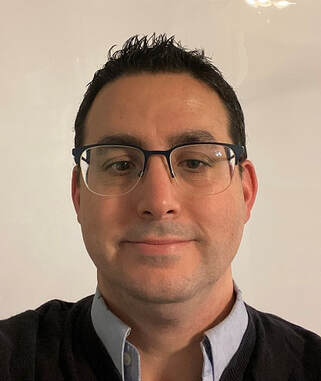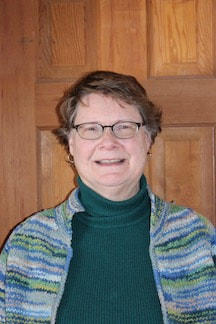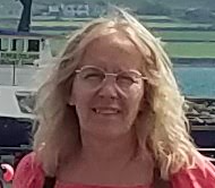Friends of the Earth, Sea & Space Center Board
The members of the board share a strong commitment to supporting Friends of the Earth, Sea & Space Center and its mission to bring a high quality science center to the New Hampshire seacoast. They represent a broad cross-section of professional, community, and cultural backgrounds.
|
|
Board of Directors
Crystal Ward Kent
Chair and Founder
Chair and Founder
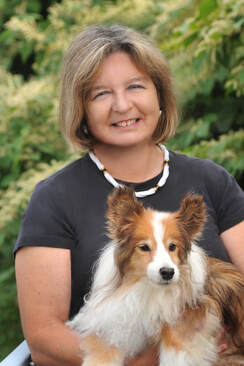
Crystal Kent graduated from the University of New Hampshire with a degree in journalism and a minor in wildlife ecology. She has worked for the Maine Tourism Association, as an assistant editor at the University of New Hampshire, and in the corporate sector where she managed a wide range of communications efforts. She later started her own business, Kent Creative, an award-winning creative services agency providing writing, design, PR and marketing. Crystal is passionate about nature education and has created numerous exhibits, programs and materials about the natural world for science centers and schools. She is also a well-known free-lance writer, and regularly writes articles about animals, ecosystems and issues affecting our planet for a wide range of publications and audiences. She makes her home in Eliot, Maine with her family and rescue pets.
Dr. Joseph St. George
Vice Chair
Vice Chair
|
Joseph St. George graduated from the University of Delaware with a B.A. in Biology, and from Boston University with an M.A. and PhD in shark reproductive genetics. His extensive work as a biologist has shaped his strong passion for the natural world and the preservation of our environment. Joseph spent time in the field researching hammerhead sharks for the Hawaii Institute of Marine Biology, then studied tropical ecology in the rain forests of Costa Rica. Later, he worked at the Mount Desert Island Biological Laboratory researching dogfish and skates. During his college and graduate career, Joseph taught at the college level and was also awarded a National Science Foundation GK-12 Fellowship, so that he might bring a lab curriculum to the Chelsea School District Middle Schools in Chelsea, MA. Joseph currently is director for Product Operations at Educational Testing Services, advocating for better and more equitable education by designing new student assessments that allow all students to show what they know and are able to do.
|
Marcia Peverly
Secretary
Secretary
|
Marcia Peverly recently retired as manager of the Maine Tourism Association’s lead visitor information center in Kittery, Maine. The Center serves more than 300,000visitors per year, with travelers coming from all over the country and all over the world. Managing the Center required knowledge of attractions, museums, and recreation throughout the state, as well as in nearby states and provinces. In addition, travel counselors fielded questions on everything from traffic laws to Maine’s history and economy, fishing limits and safety precautions. Marcia graduated cum laude from the University of Bridgeport with a bachelor’s degree in art. She enjoys experiencing the outdoors through hiking, cross-country skiing and photography.
|
Cheryl Walsh
Director
Director
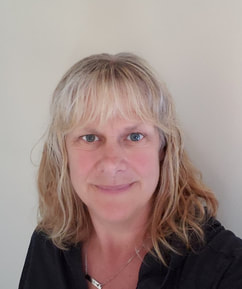
Cheryl Walsh holds a Bachelor’s degree from the University of New Hampshire. She currently works for Blackbaud, a leader in nonprofit software. Cheryl assists a wide range of national nonprofit clients with their databases and fundraising campaigns. Prior to working at Blackbaud, Cheryl was the Manager of Individual Giving for New Hampshire Public Broadcasting. She worked at the PBS station for 20 years and was responsible for securing one-third of the station’s funding through gifts from individuals. Cheryl enjoys spending time with her family, and is also an avid horsewoman, doing everything from trail riding to versatility.
|
Dr. Beth McKenna
Director |
|
Beth McKenna holds a Doctorate in Educational Leadership from UMass Lowell. She was a classroom teacher for many years, teaching students from pre-school to college age. Beth spent many years in the York, Maine school district and now teaches at the College of Professional Studies at the University of New Hampshire. She has been interested in science throughout her career and was involved in creating science curriculum for second grade which was published by BetterLesson. She and her husband have run several marine science programs on the water for children and their families. Beth believes that children should engage in hands-on science experiences to build their understanding of the world around them and better understand their role in taking care of that world. She and her husband make their home in Dover.
|
Advisory Board
Dr. Clyde Roper is the world’s foremost biologist on cephalopods and giant squid. Now an emeritus staff member, Clyde has worked as a zoologist in the Department of Invertebrate Zoology at the Smithsonian's National Museum of Natural History since 1966. He conducted extensive research on the diversity, morphology, behavioral systematics and biology of cephalopods (squids, octopuses, nautiluses, and cuttlefishes), and in deep-sea biology. Clyde is also a pioneer in the field of bioluminescence (the production of cool light by living organisms) in mid-water cephalopods, as he and a colleague proved the hypothesis of counter-illumination, by which deep-sea life uses bioluminescent light as a form of camouflage from predators in the blackness of the deep sea. He has discovered and described new species, a number of new genera, and one new family of cephalopods.
Clyde received his bachelor's degree in biology from Transylvania University, Lexington, KY, in 1959. He received both his master's degree (in 1962) and his doctorate (in 1966) from what was then called the Institute of Marine Sciences at the University of Miami in Florida. (It is now the Rosensteil School of Marine and Atmospheric Sciences.) Clyde has published more than 100 works in scientific journals and books. The United Nations' Food and Agricultural Organization published Roper's Catalog of Cephalopods of the World in 1984. The book describes the biology and distribution of cephalopods that are used for human food and fishery resources around the world.
Clyde received his bachelor's degree in biology from Transylvania University, Lexington, KY, in 1959. He received both his master's degree (in 1962) and his doctorate (in 1966) from what was then called the Institute of Marine Sciences at the University of Miami in Florida. (It is now the Rosensteil School of Marine and Atmospheric Sciences.) Clyde has published more than 100 works in scientific journals and books. The United Nations' Food and Agricultural Organization published Roper's Catalog of Cephalopods of the World in 1984. The book describes the biology and distribution of cephalopods that are used for human food and fishery resources around the world.
Captain Christopher J. Cassidy was born in Salem, Massachusetts but considers York, Maine to be his home. He graduated from York High School in York, then completed Naval Academy Prep School in Newport, Rhode Island in 1989. He received a Bachelor of Science in Mathematics from the U.S. Naval Academy in 1993, and a Master’s of Science in Ocean Engineering from the Massachusetts Institute of Technology in 2000. He holds honorary doctorates from Husson University and the University of Maine at Augusta.
A former Navy SEAL, Cassidy completed combat missions in Afghanistan. He received the Bronze Star with combat “V,” and was then awarded a second Bronze Star for combat leadership service in Afghanistan in 2004; he also received a Presidential Unit Citation for leading a nine-day operation in the Zharwar Kill Cave on the Afghanistan/Pakistan border.
In 2004, NASA selected him to be an astronaut. Cassidy made his first foray into space in 2009 as a Mission Specialist aboard the Endeavor. He was the 500th person in history to be launched into space. Endeavor’s mission was to deliver various key components to the Space Station, assemble them, and initiate several science experiments. Cassidy returned to the Space Station in 2013 as a Flight Engineer. In 2015, he became NASA’s 14 th Chief Astronaut and served in this capacity for two years. Cassidy is a veteran of three space flights, 10 space walks and has flown to the International Space Station (ISS) aboard both the Endeavor and the Russian Soyuz spacecraft. Overall, he has spent 377 days in space. For his final NASA mission, he returned to the Space Station in March of 2020, and was there through late fall of that same year.
Other lifetime achievements include finishing the Ironman World Championship triathlon in Kona, Hawaii in 2014, and his trip through the Amazon. Cassidy biked through the Amazon in 2018 along with his brother and another scientist to draw attention to the plight of the rainforest—whose destruction he has seen from space. He is passionate about preserving the health of our planet and plans to do more in the area of environmental education now that he has recently retired from NASA.
A former Navy SEAL, Cassidy completed combat missions in Afghanistan. He received the Bronze Star with combat “V,” and was then awarded a second Bronze Star for combat leadership service in Afghanistan in 2004; he also received a Presidential Unit Citation for leading a nine-day operation in the Zharwar Kill Cave on the Afghanistan/Pakistan border.
In 2004, NASA selected him to be an astronaut. Cassidy made his first foray into space in 2009 as a Mission Specialist aboard the Endeavor. He was the 500th person in history to be launched into space. Endeavor’s mission was to deliver various key components to the Space Station, assemble them, and initiate several science experiments. Cassidy returned to the Space Station in 2013 as a Flight Engineer. In 2015, he became NASA’s 14 th Chief Astronaut and served in this capacity for two years. Cassidy is a veteran of three space flights, 10 space walks and has flown to the International Space Station (ISS) aboard both the Endeavor and the Russian Soyuz spacecraft. Overall, he has spent 377 days in space. For his final NASA mission, he returned to the Space Station in March of 2020, and was there through late fall of that same year.
Other lifetime achievements include finishing the Ironman World Championship triathlon in Kona, Hawaii in 2014, and his trip through the Amazon. Cassidy biked through the Amazon in 2018 along with his brother and another scientist to draw attention to the plight of the rainforest—whose destruction he has seen from space. He is passionate about preserving the health of our planet and plans to do more in the area of environmental education now that he has recently retired from NASA.
Dr. Winsor Watson, University of New Hampshire - Marine Program, professor and researcher on the neurobiology, behavior, physiology, and biological rhythms of marine animals (lobsters, nudibranches, fish and horseshoe crabs).
Dr. David Bartlett, Research Professor Emeritus University of New Hampshire - Earth, Oceans & Space Institute (EOS), former director UNH SpaceGrant, former assistant director EOS.
Dr. Barry Rock, Research Professor Emeritus University of New Hampshire Earth Systems Research Center/Natural Resources and the Environment. Faculty Fellow in the Office of Engagement & Faculty Development
|
Jane Glaser (deceased), former special assistant for the Smithsonian Institution Office of Arts & Humanities, and one of the nation’s foremost museum educators, specializing in the planning and operating of museums. Jane advised Friends of the Earth, Sea & Space Center on much of the initial planning of the Center, and provided key advice on its planned operations.
|
